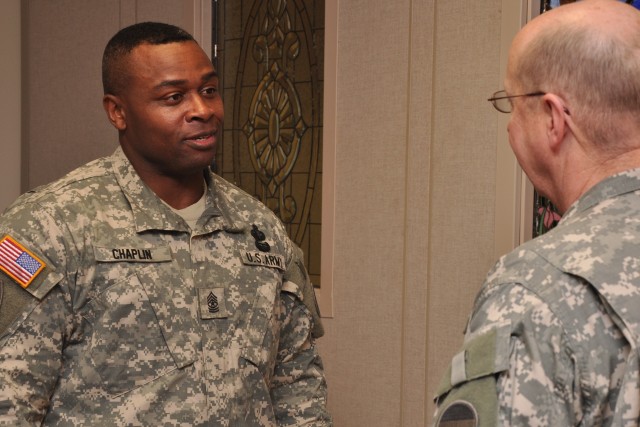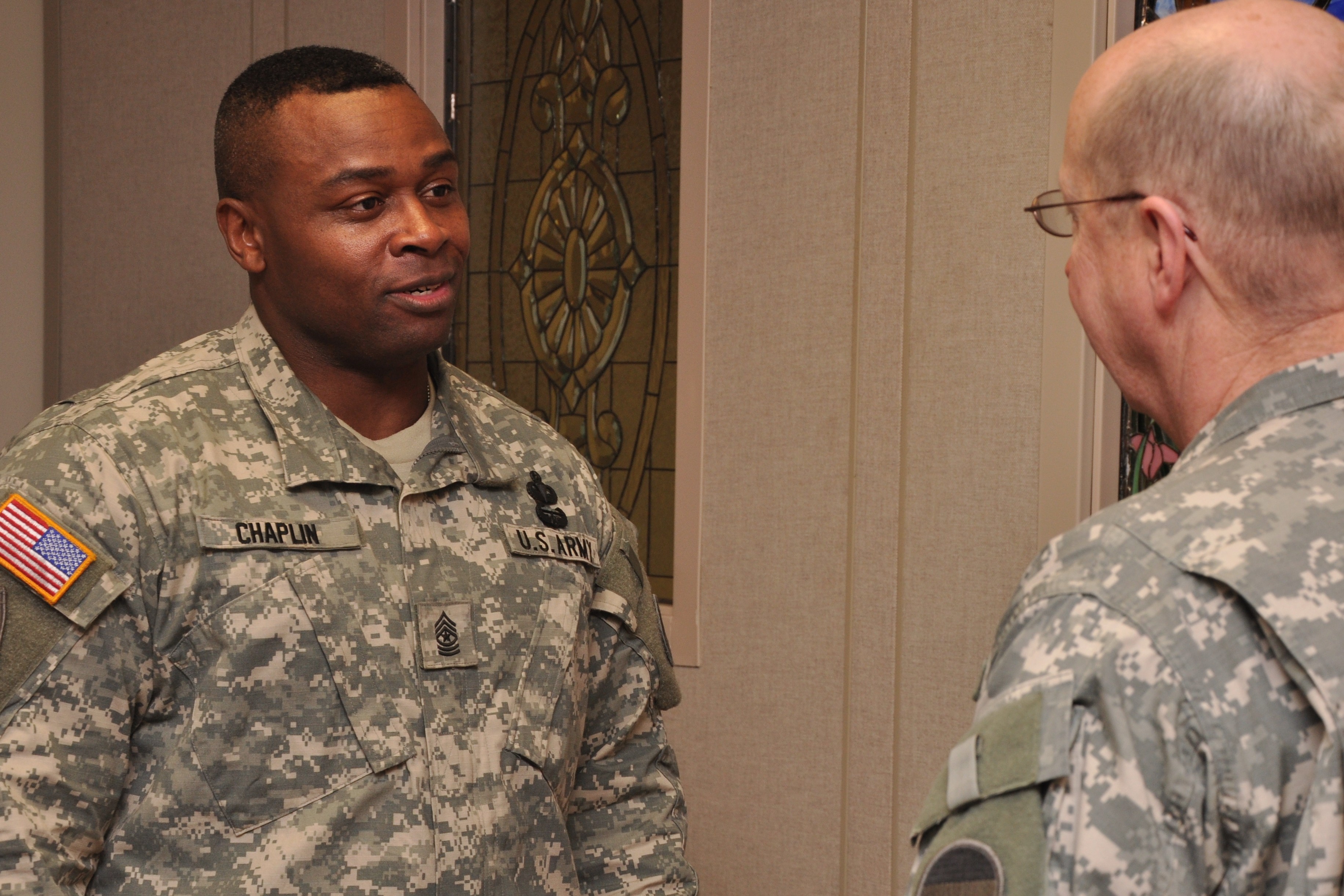
Sgt. Major Alvin Chaplin, U.S. Army Forces Command's senior chaplain assistant, likes to compare a chaplain assistant to an entire infantry company rolled into one Soldier.
"In order to get the job done, he or she has to be able to do it all - company clerk, supply person, motor sergeant and combatant.
The chaplain assistant has to set the conditions for the chaplain to succeed and the commander to execute the unit's religious programs," said Chaplin.
Chaplin made his observation on the occasion of the Army celebrating the centennial of the Army chaplain assistants Dec. 28.
For a hundred years, holders of what is now the 56M military occupation specialty have assisted chaplains in ensuring the free exercise of religion for Soldiers.
"Most of what you do as a chaplain assistant is behind the scenes. You have to love what you do and recognize that it's not about you, but about the Soldiers and their Families that you're supporting," Chaplin noted. "If you really care, it's very gratifying." While chaplain assistants were not authorized until Dec. 28, 1909, Pfc. Calvin Pearl Titus is considered to be the Army's first true chaplain assistant by the Chaplain Corps because his primary job was to assist the chaplain ministering to Soldiers in China.
During the Boxer Rebellion in 1900, Titus took leave of his assistant duties and became the first to scale the 30-foot Peking Wall while under fire.
His gallantry earned him the Medal of Honor and selection to attend West Point.
Today, more than 3,400 men and women serve as chaplain assistants.
About 400 are currently deployed in support of operations Iraqi and Enduring Freedom.
In addition to providing religious support that assists commanders in addressing the needs of Soldiers and Families, chaplain assistants also serve as combatants who perform and coordinate security requirements of religious support, while minimizing the security risks of chaplains who are non-combatants and do not bear arms.
"Chaplain assistants put in long days, working evenings and weekends, and they must have the ability to balance those duties with their need to develop and maintain their basic Soldier skills. They are Soldiers first, and that is paramount to being able to execute the mission," Chaplin insisted.
In remarks made at the DOA tribute to chaplain assistants, Maj. Gen. Douglas Carver, chief of chaplains, declared, "The chaplain assistant MOS is 100 years old today, but the reality is that our Chaplain Corps is 100 times better thanks to the assistance, support and selfless service of the chaplain assistants alongside us."

Social Sharing